Saturday 11:15-12:00

Urszula Majdanska Wachowicz – PhD in Linguistics, TEFL teacher, teacher-trainer, Assistant Professor, Zielona Gora University, Poland, IATEFL Poland
Urszula Majdanska Wachowicz
“Let’s Sing PRESENT: Toward a Global Mindset”
This workshop is a ready-made lesson plan on how to revise the present tenses and introduce a “carpe diem” attitude at the same time. Two famous songs will be a platform of reference to indicate the live in the moment philosophy. If you are interested in the meaning of NOW, feel invited to join this workshop.
Key words: Adult Learners, teenagers
Cliff Parry
“Educating the Mind without Educating the Heart is no Education at All”
What does it mean to play a positive role in society? How can we best prepare our young(er) learners for life beyond school walls?
Key words: Adult Learners, School Management, Teacher Development and Research, Young Learners, Very Young Learners

Cliff Parry is a Teaching Centre Manager, British Council Greece
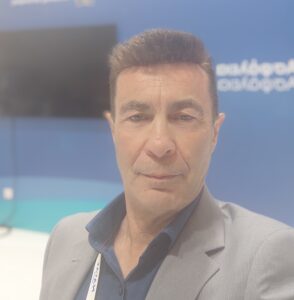
Dr Michail Fountoulakis – Experienced English Ph.D. with teaching and research expertise.
Dr Michail Fountoulakis
“Transforming Education: Tech’s Role in Global Language Communication”
This study explores the impact of AI-driven translation tools and language learning applications on enhancing cross-cultural communication and linguistic competence in educational settings. Using a mixed-methods approach, it merges quantitative data from user surveys and engagement metrics with qualitative insights from interviews with educators, students, and language app developers. This methodology helps understand the effects of these technologies on language learning and intercultural interaction. The research shows high usage rates of AI tools in education and their positive effectiveness, suggesting a trend towards technology-enhanced language learning. However, qualitative feedback indicates a need for more interactive, culturally immersive content. The study advocates balancing technological advancements with traditional teaching methods, proposing an educational model that merges AI’s efficiency and personalization with cultural context and emotional engagement. These findings imply educational policy reforms, integration of AI tools in language curricula, and comprehensive teacher training. The study concludes with AI’s potential to transform language education, recommending further research and ethical considerations in technology’s growing role in education. Contributing to communication theory, sociolinguistics, and educational psychology, this research offers insights into technology’s complex role in language acquisition and global-mindedness.
Key words: Adult Learners, Learning Technologies, Online Teaching, Specific Learning Differences, Educational Psychology
Konstantina Frantzeskaki
“Empowering Learners Through English as an Additional Language”
Explore the transformative journey of unlocking global mindsets through English as an Additional Language. This presentation delves into strategies fostering cross-cultural understanding, cognitive skills, and a broader worldview, emphasizing the pivotal role language plays in cultivating a global mindset for learners.
Key words: Specific Learning Differences

Konstantina Frantzeskaki – International Programme Coordinator, Athens, Greece. Passionate about building supportive learning communities.

Safwan Kadoura is the president of Syria TESOL in Syria and the CEO of Blue Ocean language school in Damascus
Safwan Kadoura
“From ELT Teacher to ELT Manager”
Throughout their ELT career, many teachers fall into ELT management. Though this is an advancement opportunity, it still has challenges and difficulties. The presenter will discuss this matter and suggest some practical tips on how newly-appointed ELT managers can deal with the new position and successfully run the LTO
Key words: School Management
Saturday 12:15-13:00
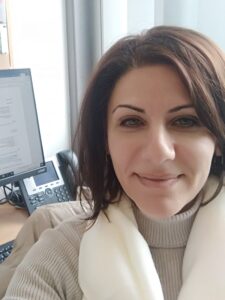
Dr Helen Stavrou – English Language Instructor, The Language Center, The University of Cyprus, CYPRUS
Dr. Helen Stavrou & Eleni Varvaloukas-Ioannou
“ELT in Higher Education: From Classroom Practices to a Global Mindset”
This workshop will provide practical insights as to how ELT practices can encourage students towards the development of a global mindset through the use of pop songs.
Key words: Adult Learners

Eleni Varvaloukas-Ioannou – English Language Instructor, The Language Center, The University of Cyprus, CYPRUS

Georgios Kormpas – Director of the Teaching, Learning, and Development Center at Al Yamamah University in Saudi Arabia
Georgios Kormpas
“Homo Technologicus Unleashed: Nurturing Global Mindsets Beyond Language”
Discover the transformative power of technology in language education. This presentation explores innovative techniques and digital tools, emphasizing cultural awareness, to nurture global mindsets among learners. It equips educators with the means to impart language skills that transcend borders, fostering a genuinely global perspective.
Key words: Adult Learners, Learning Technologies, Online Teaching, Teacher Development and Research
Despina Mallidou
“Redefine Our ‘WHY’ As Educators”
Redefining the “why” in education is a powerful concept that can transform the way we approach learning and teaching. Education is not just about acquiring knowledge; it’s about empowering individuals to reach their full potential and make a positive impact in the world.
Key words: Teacher Development and Research
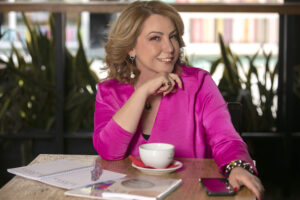
Despina Mallidou – Educator and Teacher Trainer, Athens Greece.
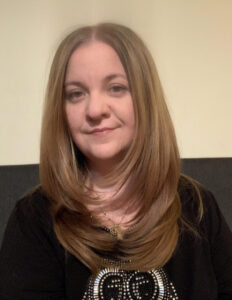
Eliza Raduca – MSc, BA, CELTA certified teacher, speaker – Lexis, Romania and Key2Learn, Greece
Eliza Raduca
“The Metalanguage of Stories”
The workshop aims to explore the vast universe of stories and their specific elements that create the magical atmosphere of storytelling. We will try together with the participants to identify the common elements in stories from different cultures and to use them into classroom actives for teaching different skills.
Key words: Adult Learners, Drama & Literature, Learning Technologies, Teacher Development and Research, Young Learners

Tanya Livarda – EFL Teacher/Teacher Trainer/Oral Examiner, Thessaloniki, Greece
Tanya Livarda & Maria-Araxi Sachpazian
“The Development of Global Mindset in Learners Above B2 Level”
What is a global mindset and how is it related to exam skills and the ability of learners to communicate effectively at an international level? This session aims to examine the theory behind the development of a global mindset above B2 level. Specific integrated skills activities which promote the development of a global mindset will be presented.
Key words: Exam Classes/Soft skills

Maria-Araxi Sachpazian – Lecturer City College, University of York Europe Campus, Manager Input on Education
Saturday 15:05-15:50
Sinem Atamsoy Koşar
“Growing with Growth Mindset”
In order for us to have Global Mindsets, we first need to focus on how well our ‘life skills’, also known as ‘social skills’ and ‘global skills’ are. These simply relate to how well we communicate and collaborate with others. We will be focusing on the relationship of having a growth mindset and life skills.
Key words: Adult Learners, School Management
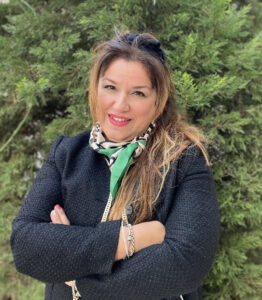
Sinem Atamsoy Koşar – Vice Head School of Foreign Languages, Ege University /TESOL Türkiye former President İzmir Türkiye
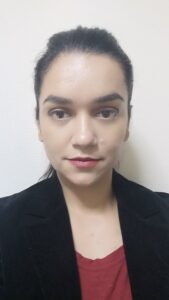
Nausheen Ayesha Khan – English Lecturer at Kanda University of International studies. Chiba, Japan
Nausheen Khan
“Global Perspectives: Fostering Literacy in Japanese Classrooms with Refugees”
This presentation unveils innovative pedagogical strategies in a semester-long course for first-year English students in Japan. Focused on real-life refugee case studies, the session explores diverse perspectives, enhancing critical thinking. Integrating global perspectives through collaborative projects, students create joint blogs and essays, fostering cultural awareness, communication skills, and empathy.
Key words: Adult Learners, Teacher Development and Research
Sophie Iliopoulou
“From Words to Worlds: Cultivating a Global Mindset in English Education”
The presentation focuses on the importance of adopting a global perspective in English education and suggests activities that help reduce our inequality footprint.
Key words: Teacher Development and Research

Sophie Iliopoulou – BA TESOL, Pg Adv Dip. LD & BP, Dip. TESOL, Gr. Dip. TESOL, MA TESOL

Lilika Couri – Co-Director, EDUCATIONAL & TRAINING CONCEPTS, Athens, Greece
Lilika Couri
“Fostering a Global Mindset Through Music: Activities that Work”
Music is a universal language beyond cultural boundaries. It has the ability to evoke emotions, communicate beyond words, and bring people together. Fostering a global mindset through music in EFL classrooms can improve language learning (especially speaking and writing skills), promote intercultural understanding, and create a more inclusive learning environment.
Key words: Learners of all ages & Levels
Ruby Polygenis
“Promoting Reflection on Feedback Rooms in Language Teacher Development “
This presentation examines the role of reflection on feedback Rooms in language teacher development. The presentation will inform undergraduate level programs and in-service teacher training programs across EFL contexts by providing pedagogical suggestions for material developers and curriculum designers.
Key words: Adult Learners, Young Learners

Polygenis Ruby – Director of Studies for 30 years, Faros Language School, Athens, Greece. Holder of MA in TEYL
Saturday 17:15-18:00

Tracy Huntingford -Editorial Manager, Burlington Books, Greece
Tracy Huntingford
“Using Infographics in the Classroom to Explore Today’s World”
Infographics are a great classroom resource – they get students thinking and give them something to talk about. And in today’s increasingly visual world, it is essential that students learn how to read and question them. This workshop will explore some low-prep classroom activities to exploit infographics to the full.
Key words: Teaching Teens/Exam Classes
Nermeen Nasr
“Critical Thinking: Teaching -Testing -Developing”
This session is about 21st century skills, focusing on critical thinking. It defines critical thinking and provides different ways that can be used to implement it. It also highlights the idea of whether higher-order thinking can be tested or not. Finally, it explains how critical thinking can be developed.
Key words: Teacher Development and Research
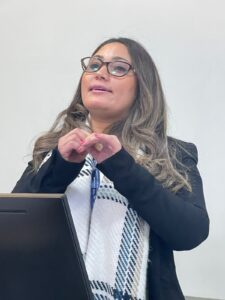
Nermeen Nasr Labib – IB Examiner, IB Global Centre in Cardiff, United Kingdom, Alexandria, Egypt.
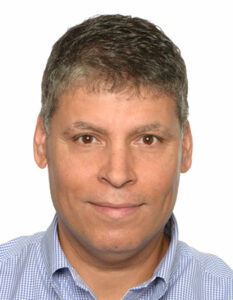
Ridha Mejri – Senior Lecturer for Business Communication & Intercultural Management, Worms, Germany
Ridha Mejri
““Corporate Adventure” an Entrepreneurial Project”
“Corporate Adventure” is a business project where students create their own company. On balance the students improve their 4 C´s skills: communication, creativity, collaboration & critical thinking. They also develop their presentation, digital, marketing, intercultural, conflict management and decision making skills.
Key words: Adult Learners
Thom Jones
“The Future of EFL Classroom: How Reflective Practitioners Empower Learners “
What will learning look like in the next few decades? How will these changes impact teacher education and our perceptions of what ‘’learning’ and ‘’teaching’’ are? What are the new roles of teachers as reflective practitioners and how will learners become self-regulated? If you want answers, come to the Room!
Key words: Adult Learners, teenagers

Thom Jones – Working globally as a trainer (education, business), a college principal. Consultant for Express Publishing.
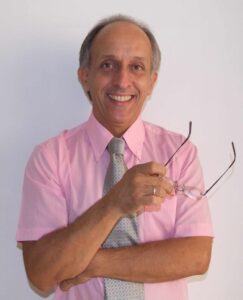
Paul Bouniol – M.A. TESL, PeopleCert/LanguageCert Academic Consultant, Athens, Greece
Paul Bouniol
“Introducing and Exploring Computer Adaptive Testing (CAT)”
Computer Adaptive Testing (CAT) is a sophisticated method of test delivery based on Artificial Intelligence and currently on the leading edge of assessment technology. Learn what CAT is all about and why it promises to soon become a popular and attractive option for language test takers globally.
Key words: Learning Technologies
Saturday 18:15-19:00
Natalia Liashko
“STEAM Up Your CLIL!“
Knowing that today’s learners are required to be flexible, creative and innovative, puts teachers into the position of implementing new approaches such as CLIL and STEAM. These two terms are sometimes confused because they are strongly interconnected. During this workshop we are going to investigate them through practice and decide how we can turn our CLIL lessons into STEAM ones.
Key words: CLIL and STEAM learning
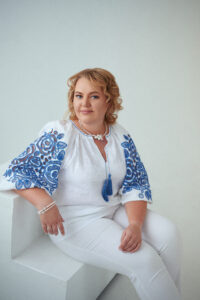
Natalia Liashko has been teaching English for 18 years. She is a highly qualified teacher trainer in Ukraine and abroad.
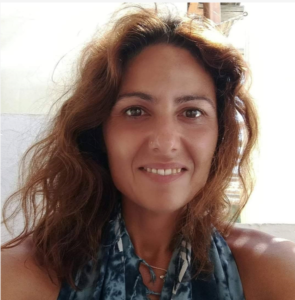
Vasiliki Mandalou – Philologist, CELTA, writer. msc learning difficulties/autism. Literature and philosophy
Vasiliki Mandalou
“Toxic Positivity: A Modern Plague.”
A workshop for teachers that will let them unfold the deepest meanings of being genuinely well in order to teach well. It will enable the attendees to discover the toxicity hidden in our everyday working experiences.
Key words: Adult Learners, Drama & Literature, Specific Learning Differences
Vivian Bussinguer-Khavari
“Developing a Global Mindset by Reevaluating our Language Classrooms”
Based on the field of Mind, Brain, and Education Science (MBE) and the applications of Performance in Education (PIE), this presentation focuses on encouraging and challenging educators to make classrooms better by creating more authentic and fulfilling learning experiences for language learners.
Key words: Drama & Literature, Teacher Development and Research, teaching methodology, performance in education, performance-assisted learning, MBE (Mind, Brain, and Education Science)
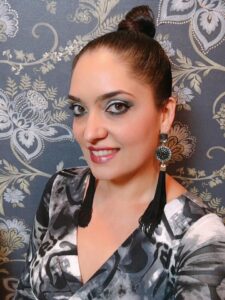
Dr. Vivian Bussinguer-Khavari is an associate professor at Kwansei Gakuin University, Japan.
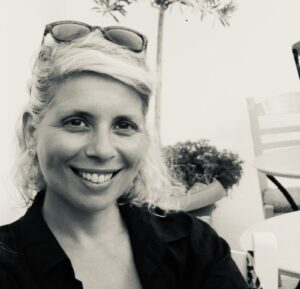
Eleni Oikonomou – ESL Teacher, Mentor, and YL Co-ordinator at the British Council Athens, Greece
Eleni Oikonomou & Katerina Roumelioti
“Skills for Thrills: The Subtle Art of Integrating Life Skills in ELT”
The aim of this workshop is to equip ESL educators with tips and strategies to seamlessly integrate life skills into their practices, preparing students not just for language proficiency but for success in the multifaceted landscapes of their lives.
Key words: Young Learners
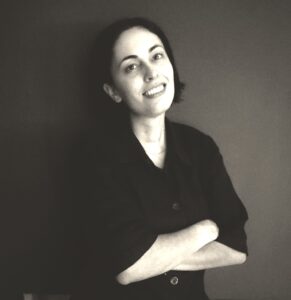
Katerina Roumelioti – ESL Teacher and Mentor at the British Council, Athens, Greece
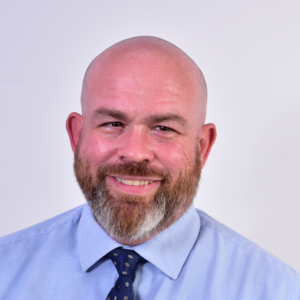
Michael Decker is an English Language Fellow at the University of Tirana in Albania.
Michael Decker
“Strategies for Using Generative AI in the Classroom”
This presentation explores using AI tools such as ChatGPT in English education. It covers automating language tasks, creating classroom activities, and managing risks like content inaccuracy and student cheating.
Key words: Learning Technologies
Sunday 11:15-12:00
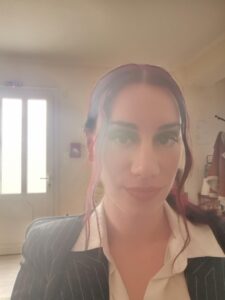
Konstantina Alevizou – EFL/ESL teacher, MA in Applied Linguistics, Moschato, Athens
Konstantina Alevizou & Evdoxia Frantzeskaki
“Examining Cultural Contexts in Textbooks: Impact on Students with Disabilities”
Drawing from cultural studies, inclusive education, and critical pedagogy, our presentation explores how textbooks serve as cultural artifacts, shaping societal viewpoints. The analysis emphasizing their impact on cultural responsiveness in educational materials, curriculum development, and teacher practices, ultimately urging a reevaluation for a more inclusive and equitable learning environment.
Key words: Young Learners
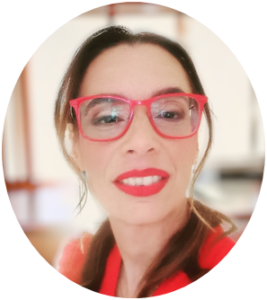
Evdoxia Frantzeskaki – ΠΕ05, Phd student, University of Cyprus, Athens, Greece
Tanya Stein Aviv
“Integrating Art into the Language Arts Curriculum”
My presentation will encourage teachers to participate. Hands-on activities to encourage using the arts in the workshop to promote an engaging classroom to enhance students’ literacy skill everyday will be demonstrated, and ideas shared in the presentation. I will utilize props, literature, singing, and dancing in the workshop so teachers can share these ideas with their students.
Key words: Drama & Literature, Young Learners, Very Young Learners
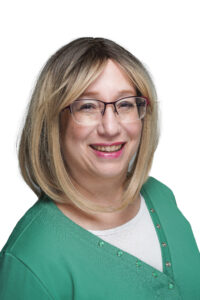
Tanya Stein – elementary school teacher, ETAI affiliation, Israel
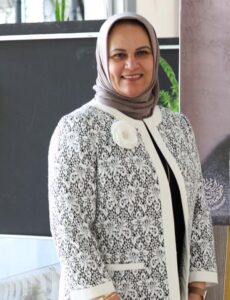
Dr Mashael Al-Hamly is a Professor of Applied Linguistics at Kuwait University.
Dr Mashael Al-Hamly
“The Effect of Translation in Cultivating a Global Mindset”
The presentation will discuss what is meant by Global Mindset, its main characteristics, ways to enhance a global mindset among learners, as well as the role of translation in developing a global mindset.
Key words: Adult Learners
Maria Peristeri
“Little Artists-Big Dreamers; How We Met Famous Painters in the Kindergarten?”
The aim of this presentation is to give practical ideas on how to teach English through paintings in a Kindergarten classroom. What are “The Potato Eaters” eating in reality? What is the real name of “Vertumnus”? Has “Guernica” got a sister? “Miss, Look ! Potatoes! I’m a Potato Eater!” These were the words of a 4-year-old girl during snack time, this morning. We both laughed.
Key words: Very Young Learners

Maria Peristeri is a graduate of UoA and a CELTA holder. She has worked as an English Language teacher in Italy and Poland.

Christina Bakopoulou – Managing Director Burlington Books, Athens, Greece.
Christina Bakopoulou
“Developing Active Global Citizens through AFS Intercultural Programs”
This presentation will discuss how AFS Intercultural Programs provide young people with immersive international or intercultural experiences. These structured and facilitated intercultural learning journeys lead to global competence. Students develop all the essential global skills they need to live, learn, work and volunteer to contribute to society and change the world.
Key words: AFS Intercultural Programs
Sunday 12:15-13:00
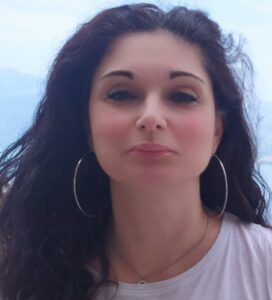
Aggeliki Birbili has been an EFL teacher since 2001. MA in TESOL. The last 5 years she works mainly with SEN students. Staffordshire. Pallini. Greece
Aggeliki Birbili
“Mindset Makeover:Turning “I can’t” into “I can LOL”.”
A workshop with activities on growth mindset for young learners, teenagers, and adults. Assess if and how the activities are growth mindset ones.
Key words: Adult Learners, Young Learners, Teenagers
Efi Tzouri
“Cinematic Narratives in classroom: Bridging Borders, Inspiring Minds”
This presentation outlines the significance of incorporating refugee documentaries into the classroom, emphasizing their role as catalysts for inspiration, critical thinking, and the cultivation of empathy. Through the power of film, educators can create an enriched educational experience that transcends geographical boundaries and forms a global language of communication
Key words: Film Language/ All levels
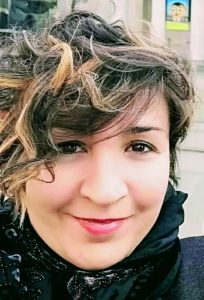
Efi Tzouri is an EFL teacher, currently teaching to young learners at a State Primary School in Athens, Greece.

Tanya Stein – MA, TEFL teacher and teacher trainer, ETAI board member, Israel
Tanya Stein Aviv & Urszula Majdańska Wachowicz
“Learn Locally, Speak Globally – A Workshop on Teaching Speaking”
This workshop will present some ideas on how to teach speaking skills in a global context. In the first part, Tanya will share her ideas on teaching speaking young learners. In the second part, Ula will demonstrate some activities to enhance speaking and communicative competence among teenagers and university students. In the last part, the presenters will try to find a common ground.
Key words: Adult Learners, Young Learners, teenagers

Urszula Majdańska Wachowicz – PhD in Linguistics, TEFL teacher, teacher-trainer, Assistant Professor, Zielona Gora University, Poland, IATEFL Poland
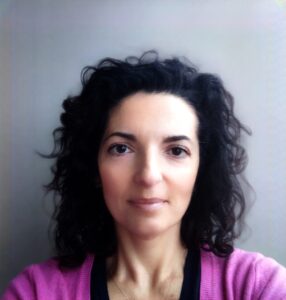
Dimitra Karala – English Teacher, British Council Greece, Athens,Greece
Dimitra Karala & Vula Panagiotou
“Educating The Mind in ELT, Cultivating Empathy in the EFL Classroom”
Our presentation aims to show that empathy is fundamental to successful language learning and to making language teaching a more compassionate profession. We will look at empathy through the lens of language learning and explore how we can explicitly develop empathy as a skill among teachers and learners, and learners and learners by employing teaching methods conducive to cultivating it in the EFL classroom.
Key words: Adult Learners, Young Learners, Very Young Learners

Vula Panagiotou – English Teacher, British Council Greece, Athens, Greece

Zafi Mandali – BA in English Literature, M.A. in Applied Linguistics, teacher trainer, storytelling coach and educational consultant
Zafi Mandali
“Reading Material and Techniques to Develop Students’ Global Mindset”
Global mindset is cultivated in learners from early on through the reading texts used. Teachers sensitive to the value of flexible thinking chose material which unlocks diverse angles of linguistic and cultural awareness. They use thinking and language mechanisms which build flexible mindsets and link existing and new knowledge.
Key words: Teacher Development and Research
Dusica Kandic Najic
“Listening Strategies in ELT”
How much time do we spend listening in our lives? How much time is devoted to listening in our classrooms? Are the students well prepared for listening activities? We will discuss it with a demonstration of what a well-prepared listening activity looks like. The participants will have a chance to experience the difference of listening with and without preparation.
Key words: Young Learners
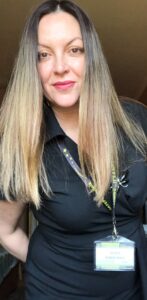
Dusica Kandic Najic – English language teacher, ELTA Serbia representative from Mladenovac, Serbia
Sunday 16:45-17:30

Katerina Mantadaki – MSc Social Neuroscience & Education, EFL Teacher, Senior Educational Consultant, Express Publishing
Katerina Mantadaki
“Getting the Message Across: Mediation in the EFL Classroom”
Explore the role of mediation in language learning, emphasizing its significance in an increasingly pluricultural and plurilingual world. This presentation delves into the CEFR Companion Volume Mediation perspective, focusing on purpose, activities, and practical application in the EFL classroom.
Key words: Adult Learners, Teacher Development and Research, Young Learners, CEFR, Communication Modes, Pluricultural Societies, English Language Teaching, Mediation
Nancy Tasiopoulou
“”The NatureKids!” Promoting Environmental Awareness in the EFL Classroom”
This presentation aims at showing educational practices that foster environmental awareness in the EFL classroom. “The Naturekids!” project entails information about how students can familiarize themselves with plants, as well as understand nature’s impact on their life using the latest educational technologies.
Key words: Green Education

Nancy Tasiopoulou – Teacher of English Doukas Primary School, Athens, Greece
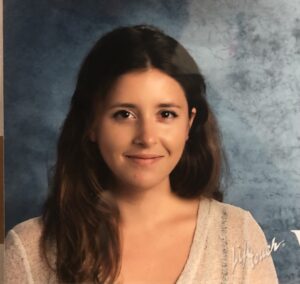
Marissa Foti is an English Language Fellow in Albania 2023-24. Fulbright Teachers for Global Classrooms alumni.
Marissa Foti
“English Teaching as an Opportunity to Cultivate Change”
Global Voices: Integrating Sustainability into English Education.
Key words: Adult Learners, Learning Technologies, Teacher Development and Research, Young Learners
Theodore Lalos
“The Road Less Travelled”
In this session, participants will be exposed to the world of visceral convictions and transversal skills. They will be provided with a genuine instance of vulnerability and will be given the chance to roam on the road that is less travelled and explore practically how active listening, unconditional positive regard and congruence along with certain other skills can release the learning potentialities of their emotionally traumatised learners.
Key words: Active listening
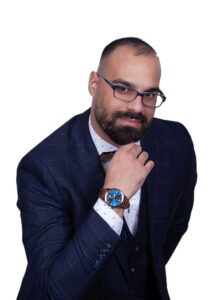
Theodore Lalos is an EFL Teacher (TKT Modules 1-3, KAL, CLIL), CELTA, Diploma in Teacher Training (Level 6), Diploma in TESOL (Level 7), Oral Examiner, Person-centred Counsellor

Dr. Anastasia Georgountzou – Athens Kapodistrian University (English Department) and Hellenic Open University (Med TESOL)
Dr. Anastasia Georgountzou & Natasha Tsantila
“Εlf-Awareness, ELT Resources, Pronunciation: Unveiling Insights from Teacher EDU”
In this talk, we present a three-phase ELF-aware teacher education course, samples of ELF-aware lessons, which focus on socio-phonological aspects and results from teachers’ engagement with the teacher-education course. Practitioners’ feedback on their overall educational experience and pedagogical implications on teacher education and materials adaptations, in multicultural contexts, are offered.
Key words: Teacher Development and Research
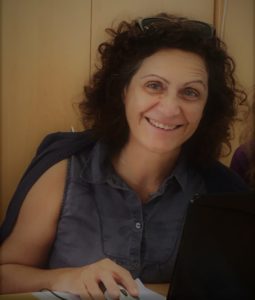
Natasha Tsantila – Lecturer at Deree-the American College of Greece (English Department)
Sunday 17:45-18:30

Judy Boyle – Founder & ELT Content Developer The NO Project & Director /Producer It’s Just Business -short film
Judy Boyle
“Film, Poetry and Social Justice: An ELT Action Gone Global”
Drawing upon the remarkable global impact of a spoken-word poem by a 16-year-old L2 speaker of English, this interactive workshop explores how collaborative, student-driven actions can be powerful mediums for social change. The underlying values throughout the session are creativity, enjoyment, self-expression, respect, and shared commitment to social justice.
Key words: Adult Learners, Teen learners, young adult learners, social issues in ELT education
Marta Bujakowska
“Mastering the Art of Thoughtful Questions”
Develop a profound understanding of the art of asking thoughtful questions, honing your ability to stimulate critical thinking and meaningful dialogue. Join us on a transformative journey to master the timeless skill of questioning for enhanced communication and intellectual exploration.
Key words: Adult Learners

Marta Bujakowska – IATEFL Poland

Dr Jane Mandalios – Co-ordinator MA TESOL, Deree – American College of Greece, Athens
Dr Jane Mandalios
“ChatGPT: Meeting its Challenges, Developing Flexibility in Student Assessment”
Generative AI (GenAI) is challenging the entire academic world, including ELT. All stakeholders are grappling with this challenge, and must consider whether to use “avoid, outrun or embrace/adapt” strategies with tools such as ChatGPT (Webb, 2023). This presentation provides insights afforded by research into the value of oral assessment in ELT, and considers how it can embrace the AI phenomenon.
Key words: Adult Learners, Teacher Development and Research, Young Learners, Assessment
Evi Karydi
“Stories and Lessons Come Alive with DRAMA”
A hands-on workshop to explore drama techniques for storytelling while building empathy and understanding.
Key words: Adult Learners, Drama & Literature, Young Learners, Very Young Learners

Evi Karydi – Owner of iLearn Language School, founder and teacher trainer of Dramactivate, volunteer educator with Hands-Up Project
Sunday 18:45-19:30
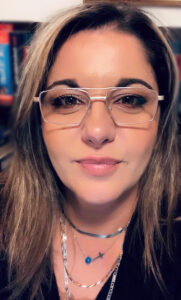
Melpomeni Dodoura – EFL teacher, MA in TESOL, Greece
Melpomeni Dodoura
“Brainstorming and Pre-Writing Strategies”
Brainstorming and pre-writing strategies will be the focal point of the presentation in an attempt to cope with the demanding component of writing for exams. Techniques for pre-writing will be presented as well as the results and analysis of my recent Action Research on the topic and how instructors can go beyond course books to assist students in and beyond the classroom .
Key words: Adult Learners, teenagers
Paraskevi Kaperoni
“Embracing Diversity: Teaching EFL to Students with Dyslexia”
This presentation focuses on strategies for teaching English as a foreign language (EFL) to students with dyslexia while embracing diversity. It explores inclusive teaching methods, accommodations, and assistive technologies that can enhance language learning experiences for students with dyslexia.
Key words: Adult Learners, teenagers
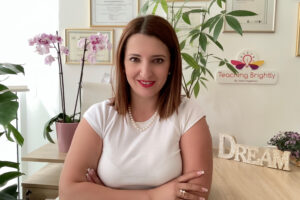
Paraskevi Kaperoni – English Teacher specialised in Learning Difficulties, Teacher trainer,ELT author and PhD candidate

Stavroula Kampakou – English teacher, Greece.
Stavroula Kampakou
“The Magic of Games”
Through the ‘The Magic of Games’ workshop, ESL teachers discover the secrets to crafting captivating, interactive PowerPoint games, igniting students’ learning journeys.
Key words: Young Learners, Gamification

Zefy Antoniadou is a teacher at the British Council, Greece.
Zefy Antoniadou & Theodore Belefas
“Cultivating a Global Mindset: Breaking Barriers Beyond Language”
This presentation explores the significance of cultivating a global mindset by transcending language barriers through effective communication. It delves into the role of spoken communication in fostering cross-cultural understanding, emphasizing the impact on personal and professional relationships. Strategies for developing intercultural communication skills will be discussed, offering practical insights for individuals and organizations.
Key words: Glodbal Mindset

Theodore Belefas is a teacher at the British Council, Greece.
Ally Shepherd
“Possibilities in Participatory ESOL: Community-Based Learning for Refugees”
As an ESOL teacher and PhD candidate, I outline a Content and Language Integrated Learning (CLIL) participatory research group at a refugee-led community centre in England. I argue that counterhegemonic community-based educational spaces hold a vital potential for transformative learning of and through language for marginalised migrant adults, to critically understand multiculturalism in ‘super diverse’ cities in the UK.
Key words: Adult Learners
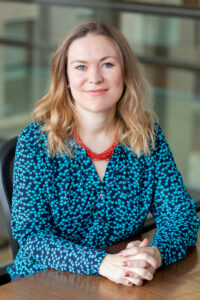
Ally Shepherd is an ESOL educator from the UK and a PhD candidate at the University of Wisconsin-Madison, US.